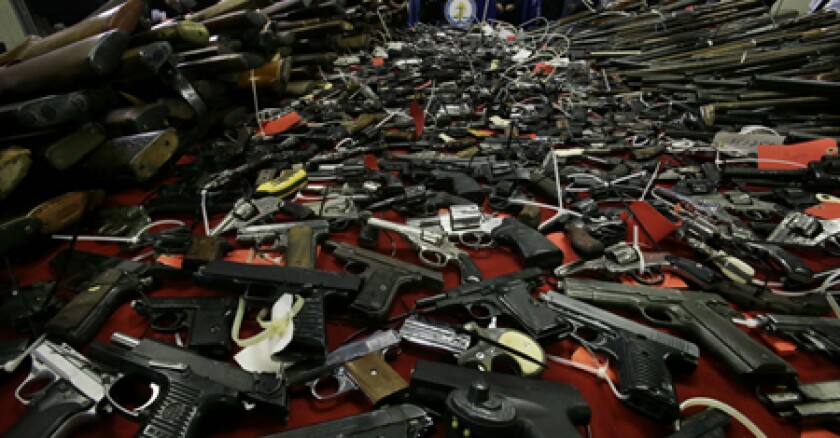But not everyone shares that outlook. Laura Cutilletta, a senior staff attorney with the Law Center to Prevent Gun Violence in San Francisco, says 2013 has been a great year for strengthening gun laws. “There really has been a major sea change [in five months],” she says.
Read the rest of this month's magazine issue.
Since the Newtown, Conn., school shooting, four states have passed new laws requiring universal background checks, three have expanded bans against military-style assault weapons and four have expanded bans on ammunition clips carrying more than 10 rounds. By the middle of June, new gun control legislation had passed in Colorado, Connecticut, Delaware, Maryland and New York, with similar proposals still alive in Pennsylvania and New Jersey. “We’re basically accomplishing what they couldn’t in D.C.,” says Stephen Sweeney, the New Jersey senate president who helped shepherd a group of gun control bills -- including universal background checks -- through the New Jersey Senate in May.
Still, gun rights activists are having a good year too. States in the South, Great Plains and parts of the West actually eased restrictions on hunting, conceal-carry permits and armed school personnel. Kansas criminalized the enforcement of federal gun control laws in April. And a handful of Democratic state lawmakers in Colorado are facing recall petition efforts for their votes to limit gun rights.
Want more public safety news? Click here.
As it stands, a patchwork of state laws is left. It is this divergence that has some still demanding action from Congress. “There is a role for the federal government that the states simply cannot fill,” says Garen Wintemute, a public health researcher who studies gun violence at the University of California, Davis. On a 2009 trip to Reno, Nev., to visit several gun shows, Wintemute was surprised to find that a third of the cars in the parking lots were from California. The regulatory framework in the Golden State didn’t stop its residents from driving across the state line to take advantage of less rigorous screening.
Mayors Against Illegal Guns, a national coalition of more than 950 mayors who favor tighter gun laws, argues that uneven regulation across states makes guns available to criminals in all states. In 2010, the group published an analysis of federal data showing that many of the guns recovered from crimes can be traced back to initial purchases in states with fewer restrictions. “No state or even group of states can protect against gun violence on their own,” says U.S. Sen. Richard Blumenthal of Connecticut, who sponsored several gun control bills this year. “A Connecticut with relatively strong gun violence prevention laws is at the mercy of other states that might have weaker or no laws, so federal protections are absolutely vital.”









